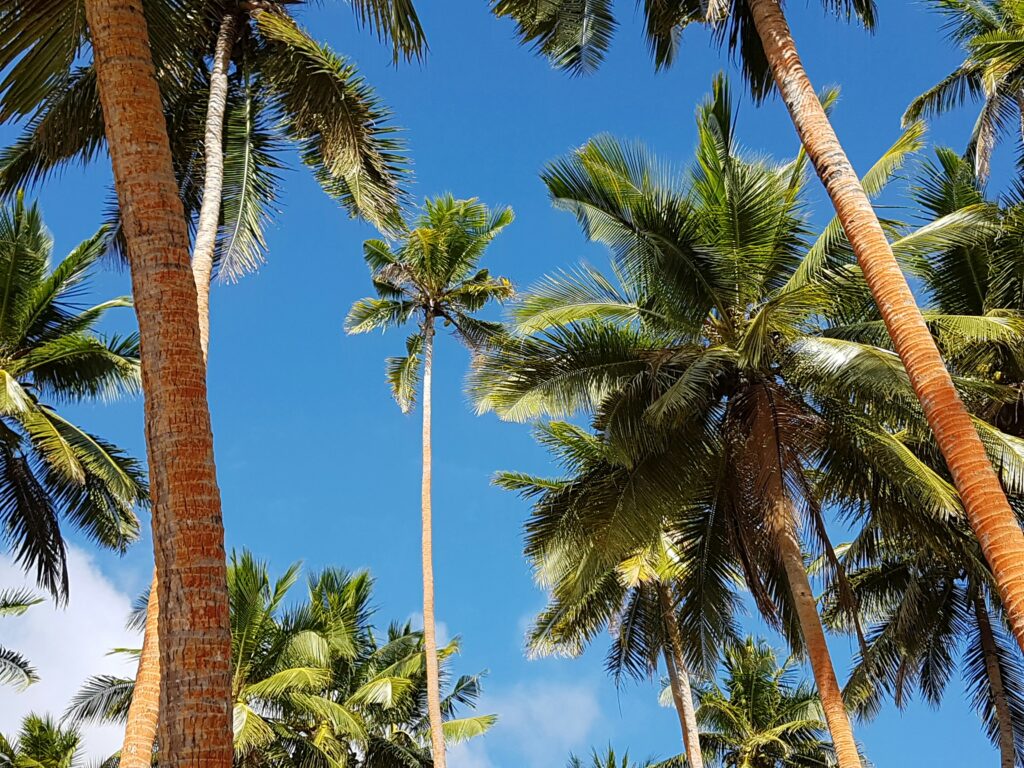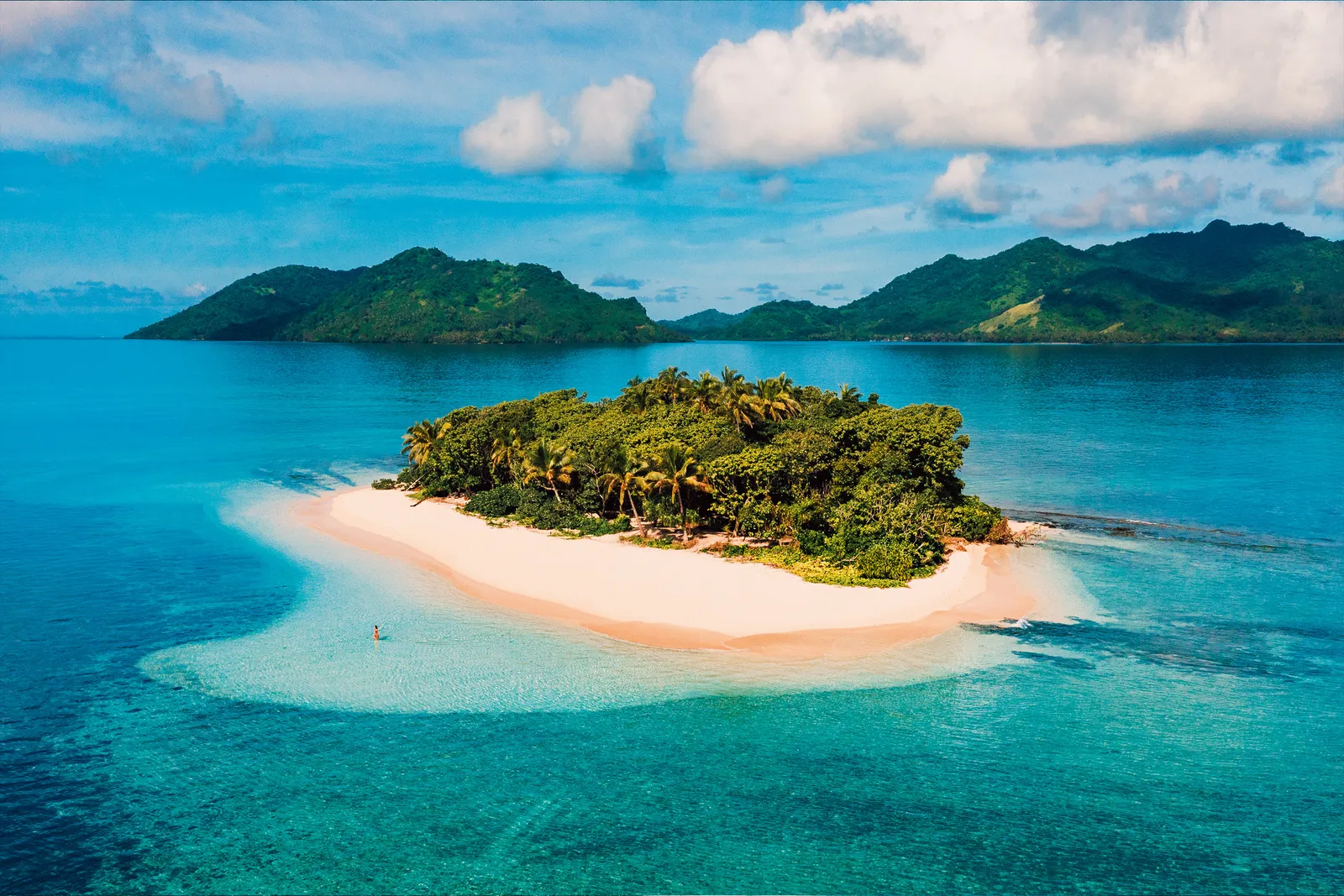Why we love Fiji
Scattered across the South Pacific, Fiji’s 300 islands each carry their own rhythm – from coral reefs and forested peaks to villages where evenings unfold in song and woodsmoke. Days move gently: mornings in the water, afternoons in the shade, nights marked by quiet rituals and the crackle of firelight. Beneath the calm surface lies texture – volcanic earth, tangled jungle, salt air that clings to skin. This guide shares the essentials to know before you go.
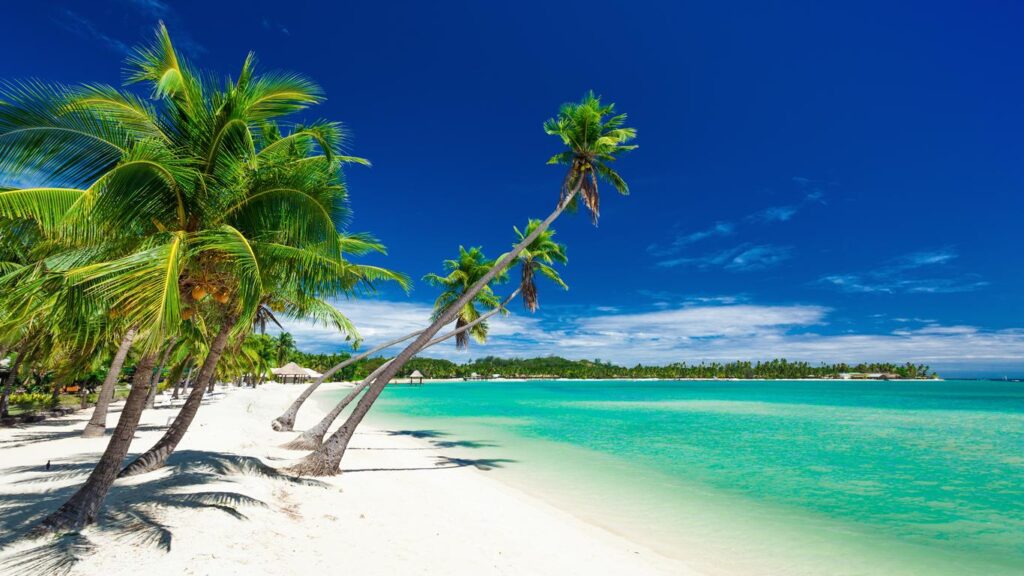
Entry Requirements
If you are travelling to Fiji, most nationalities – including the UK, EU, USA, Australia, and New Zealand – do not require a tourist visa for stays up to four months. Just ensure your passport is valid for at least six months beyond your return date and is in good condition, as Fijian immigration can be particular about wear and tear. You can read more about Fiji entry requirements here.
For the most up-to-date information, visit the Fiji government immigration website. If you are entering or returning from a different country, please check that country’s entry requirements as well. If you have any questions, our Operations team is always happy to assist.
Health and safety
We are not certified to give medical advice, but we recommend you consult your doctor or a travel specialist about your vaccination history and any additional vaccinations you may need for your trip to Fiji. You can find useful travel vaccination information and advice on bringing medication into the country here.
If you are bringing prescription medication, make sure it is clearly labelled and carry a doctor’s note if necessary.
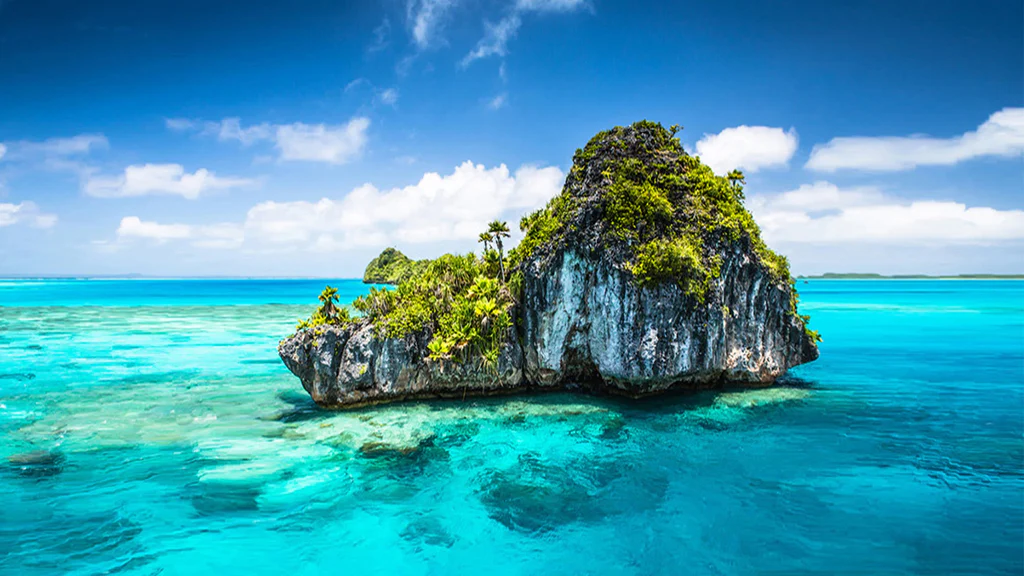
Baggage and packing
We recommend that you carry overnight essentials and any medication in your hand luggage, particularly if connecting to an onward destination, in the event of lost luggage or delays.
For domestic flights within Fiji, including transfers by seaplane or boat, there are specific luggage restrictions to be aware of. It’s best to pack light and use soft-sided bags for ease of transport, especially when travelling between islands.
Domestic flights (standard aircraft):
– Checked luggage allowance: 20kg per person
– Hand luggage allowance: 7kg per person
– Excess baggage fees usually apply (around FJD $5 per kg, payable at check-in)
Seaplane or boat transfers:
– Luggage restrictions are similar but may vary slightly by provider.
– Soft-sided bags are recommended due to limited storage space.
If you’re travelling with children or special equipment, our Operations team can confirm specific requirements with the transfer provider.
Climate
Fiji has a warm, tropical climate year–round. The dry season (May to October) is generally the best time to visit, with clear skies, lower humidity and calm seas. The rainy season (November to April) is hotter and more humid, but also quieter and more affordable, plus it rarely rains all day.

Laws and customs
Fijians are famously warm and welcoming, but it’s worth being aware of local customs to show respect and make the most of your visit. Here are our top tips for respecting Fiji’s laws and customs, but please refer to government guidance for detailed rules.
– Always carry valid identification – your passport is best, and make sure it’s in good condition. Immigration officials may ask to see it at any time.
– Be considerate in your behaviour. Avoid loud or aggressive conduct, foul language, or anything that could be seen as disrespectful – especially in rural areas and village settings.
– Dress modestly when visiting villages – cover shoulders and knees, and removing your hat is a sign of respect.
– If you’re invited to a kava ceremony, it’s polite to accept. We can also provide a quick etiquette rundown before you go so you know what to expect.
You can explore more about Fiji’s cultural customs here.
Money matters
The local currency is the Fijian Dollar (FJD). Credit cards are accepted at most resorts and in cities, but cash is essential for smaller villages, markets, and remote islands. You can withdraw local currency at ATMs in Nadi and Suva or exchange major currencies (USD, AUD, NZD, EUR) on arrival.
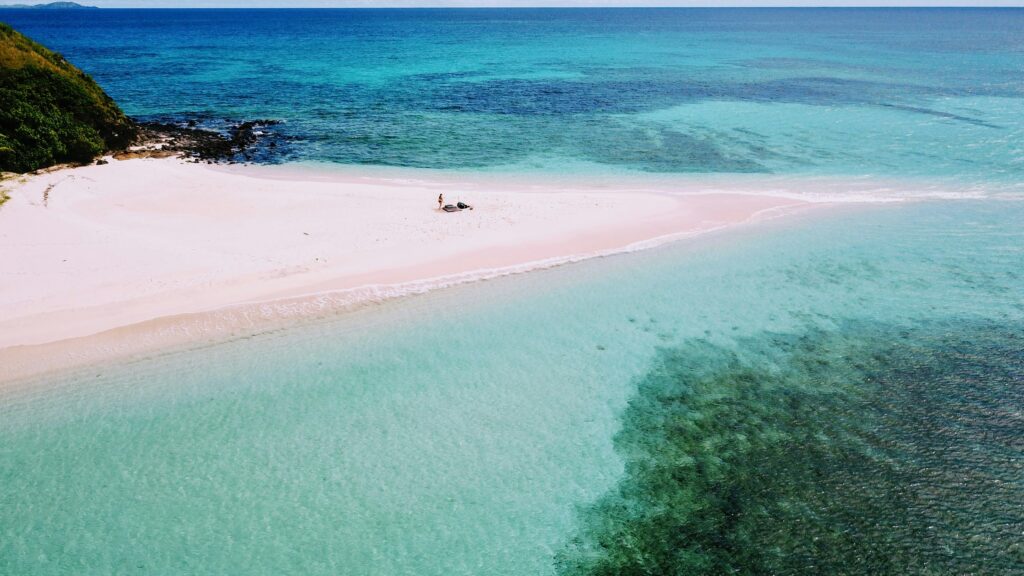
Practicalities
Plug Type: Fiji uses plug type I (the same as Australia and New Zealand), with a standard voltage of 240V.
Flights & Time Zone: Flights to Fiji from the UK and Europe typically involve a stopover (common routes go via Singapore, Hong Kong, or Los Angeles). From the US or Australia, direct flights are available. Once you arrive in Nadi, we’ll take care of getting you to your island escape – see the transfer section above for more details. Fiji operates on GMT+12 and does not observe daylight saving time.
Language: Fiji has three official languages: Fijian, English and Fiji Hindi. English is widely spoken, especially in hotels and resorts, but learning a few local phrases can go a long way.
Here are some useful Fijian phrases:
Hello – Bula
Thank you – Vinaka
Please – Yalo vinaka
Yes / No – Io / Sega
How much is this? – E vica na kena i-sau?
Excuse me / Sorry – Vosoti au
I need help – Au gadreva na veivuke
Where is the bathroom? – E vei na vale-lailai?
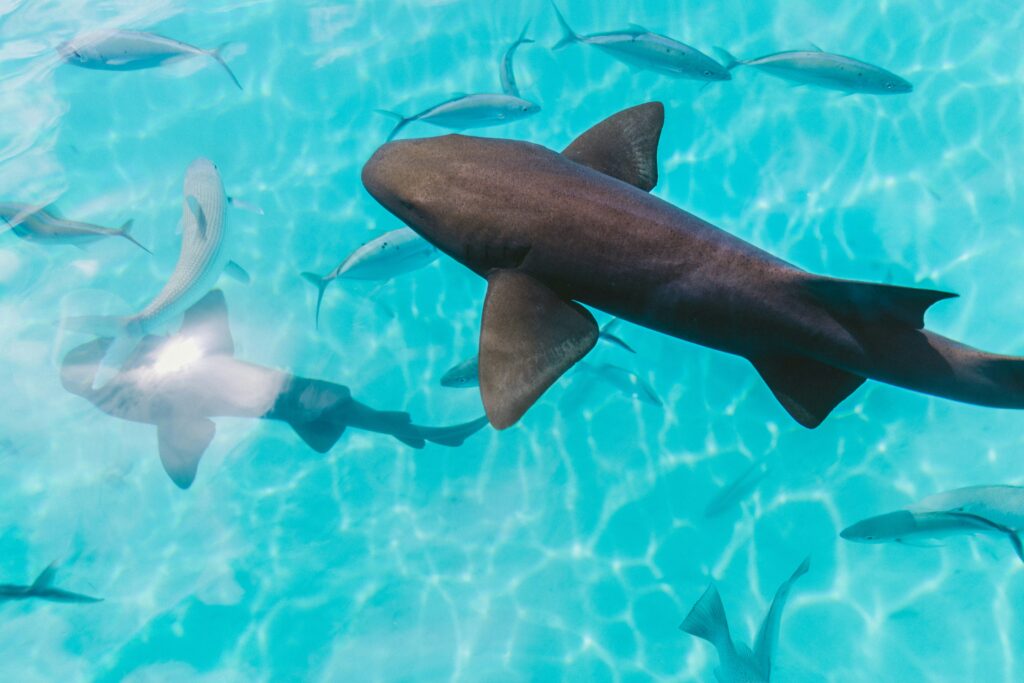
Food and drink
Fijian cuisine is a vibrant mix of Pacific island traditions, Indian influences and tropical abundance – all built around the ocean and the land. Meals are fresh, simple and full of flavour, with an emphasis on what’s locally grown or caught that day.
Lovo: A celebratory feast where meats, fish and root vegetables are wrapped in banana leaves and slow-cooked in an underground oven, giving everything a rich, smoky flavour.
Kokoda: Fiji’s national dish – raw fish marinated in lime juice and mixed with coconut cream, onions, chilli and tomato. Fresh, tangy and best enjoyed beachside.
Curries & Rotis: A legacy of the Indo-Fijian community; fragrant vegetarian and seafood curries are a staple across the islands, often served with homemade roti and chutneys.
Tropical Fruit: Think papaya, mango, pineapple and coconut in endless supply – often served fresh for breakfast or blended into smoothies and cocktails.
Drinks: Fresh coconut water is everywhere, but don’t miss a traditional kava ceremony – a mildly sedative drink made from the root of the kava plant, shared as a sign of welcome and community.
You cannot drink the tap water in Fiji but bottled or filtered water is easily available.
Keep connected
Most travellers use a local SIM or e-SIM in Fiji. These are easy to pick up on arrival at Nadi International Airport, and our Operations team will be happy to assist you. The main providers are Vodafone and Digicel, both of which offer reliable coverage across the islands. Alternatively, we recommend using Airalo to purchase an e-SIM in advance.
